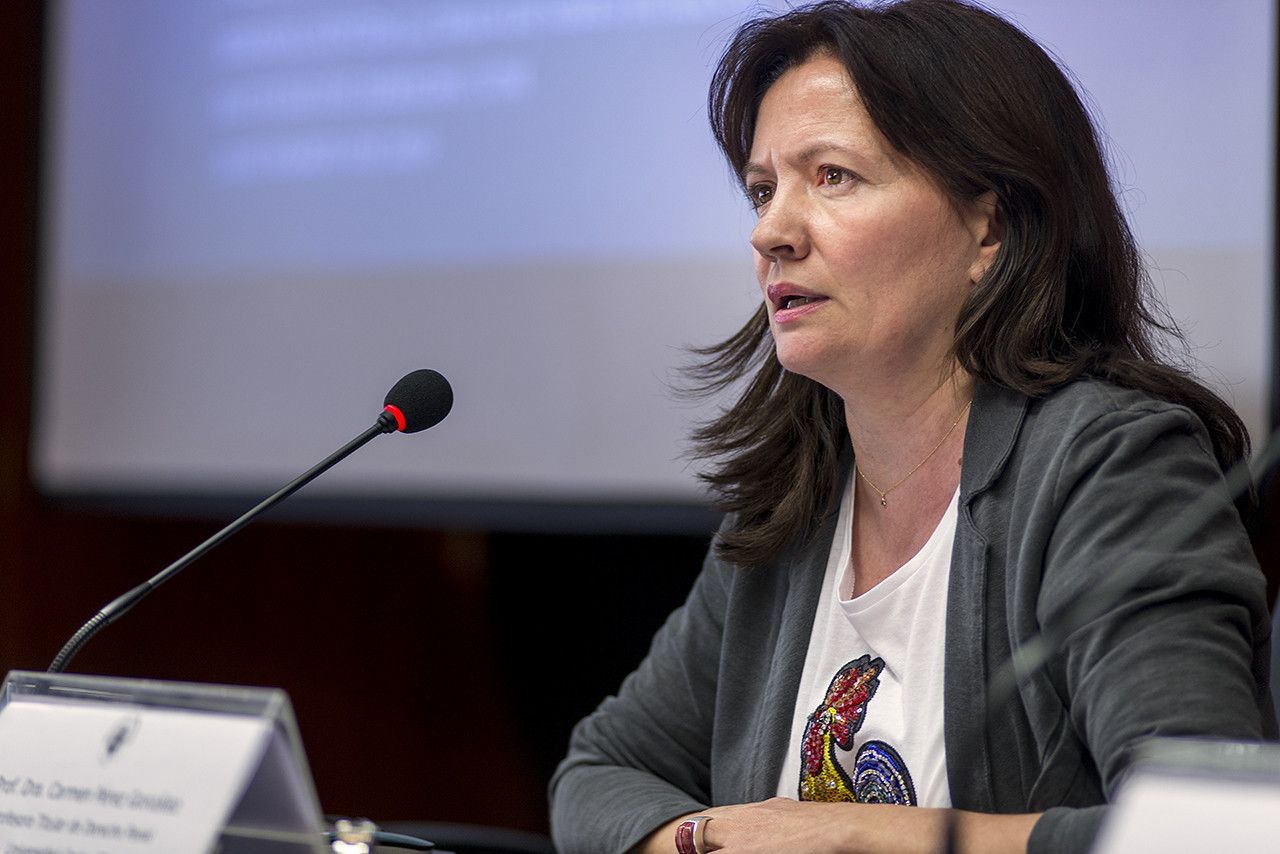
For our weekly ‘Ideas on Europe’ editorial by UACES, the University Association for European Studies, we welcome Carmen Pérez González, from the Universidad Carlos Tercero, in Madrid.
It’s the opening of the Beijing Winter Olympics, and as professor in international law, we thought you might share with us your thoughts on human rights, diplomacy, and sporting boycotts.
Yes, the use of sport by states and other organizations as a valuable tool in the international arena is not new. Sport and diplomacy do indeed seem to be a good match. In this context, stadiums are seen as meeting places for nations and international sports events as settings for communication. In short, sport creates an opportunity for diplomacy, as well-known examples, such as the so-called ping-pong diplomacy, remind us.
However, the relationship between sport and foreign relations also has a less friendly side. I am referring to the one that has to do with sport as a vehicle for political protest, diplomatic reproach or even sanction in the face of non-compliance with international law.
In a normative vein, it is worth mentioning two examples that seem relevant to me.
Firstly, the Unites Nations Convention against apartheid in sports provides a valuable example of how sport can be conceived as a tool to fight serious human rights violations.
The Convention was signed in December 1985 and entered into force on 3 April 1988. Currently, 62 states are parties to it. According to article 3, States parties are obliged to not permit sports contact with a State practising apartheid and to take appropriate action to ensure that their sports bodies, teams, and individual sportspersons do not have such contact.
Ah, I had not realised this convention still exists !
Not only does it still exist, but I think it is worth asking whether we could consider this Convention a model to be followed in cases of other very serious human rights violations.
A second example of great interest is the action of the United Nations Security Council on the basis of chapter VII of the UN Charter. This chapter gives the Security Council the power to take action when it considers that a situation endangers international peace and security. The measures adopted by the Security Council, which may even involve the use of armed force, will be binding on UN Member States.
Sports sanctions have been part of the Security Council's action in this context. In its resolution 757, adopted in 1992, on sanctions against Yugoslavia, the Security Council decided that all States should “take the necessary steps to prevent the participation in sporting events on their territory of persons or groups representing the Federal Republic of Yugoslavia (Serbia and Montenegro)”. The immediate consequence was that Yugoslavia was banned from the Euro football championship 1992, for which it had qualified. Replaced by Denmark, who finally even won the tournament !
An interesting precedent! What does this say about boycotts like the “diplomatic boycott” of the Beijing Games announced by some states?What about the geo-political consequences of Brexit?
I do not consider that sports boycotts can be labelled as sanctions in the strict sense. I think they can be understood as acceptable methods of retorsion – unfriendly, but legal – if they don’t violate any international obligation previously assumed by the state. As said, and as history shows, they are typical and effective vehicles for political protest.
It is not surprising, therefore, that the issue has re-emerged on the occasion of the celebration of the Beijing Winter Olympics. The human rights discourse is increasingly powerful, and China's human rights problems can no longer be ignored. On top of this, the country is accused of human rights abuses against the Uighur Muslims. And there is the controversy around the tennis player, Peng Shuai.
It is not contrary to international law or illegitimate that certain states have announced their decision not to send representatives to the Games. Indeed, this has been the recommendation made by the European Parliament to the EU Member States. In a Resolution adopted in September 2021 on a new EU-China strategy, the EU “recommends that EU and Member State leaders reject invitations to the Beijing Winter Olympics if there is no improvement in the human rights situation in China and Hong Kong, and no high-level EU-China human rights dialogue or summit with tangible results”.
I fully understand the unfriendly nature of this measure. At the same time, it seems to me that the defence of human rights cannot afford to do without the unique allure of sport.
And sport can no doubt ignore the human rights issue forever. Many thanks, Carmen, for putting this issue into the perspective of international law.
“Ideas on Europe” will be back next week, and we will welcome Ben Tonra, from the University College in Dublin.





